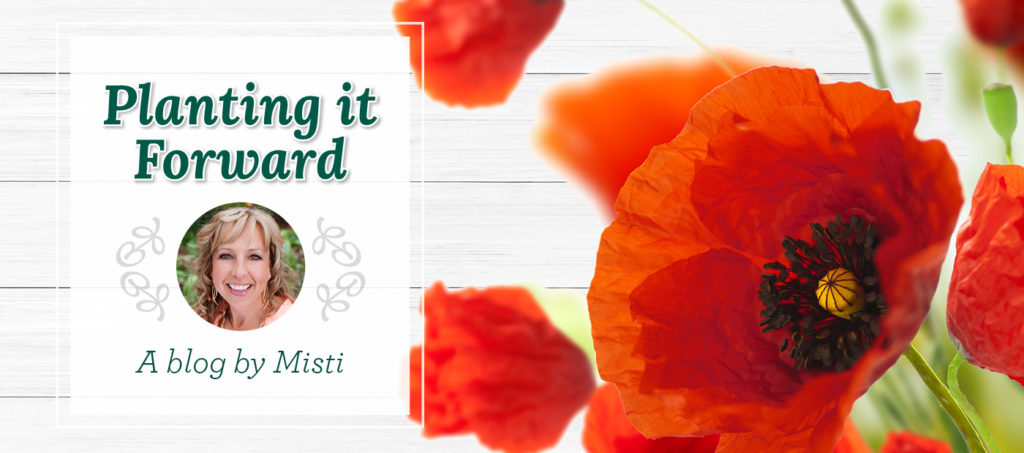
Last month, we celebrated the 50th anniversary of Earth Day. You might have missed it, given all the focus on Covid-19, but it was an important milestone. Think about how much has changed in our view of the ecology in the past five decades: we reduce, reuse and recycle; lower our carbon footprint; and work to conserve water.
What we choose to plant and how we choose to maintain is another way we can be ecologically sound.
It starts with picking the right plants for your garden. Select plants that are well suited to your area, keeping in mind climate, sun exposure and the amount of rainfall the area gets. Additionally, you need to consider plants that are disease- and insect-resistant (Potentilla and Russian Sage are great choices). This will lessen the need to be dependent on artificial insecticides or fungicides.
How you plant also will help some of the most important (if tiniest) gardeners on the planet – bees, birds and butterflies. Most of our flowering plants and about a third of the food we eat are due to these horticultural dynamos. So plant flowers that appeal to these pollinators throughout the year, like crocus in spring, snapdragons and foxglove in the summer, and zinnias and asters in the fall.
The way you feed and water your garden can also help the earth. Look into drip irrigation, which has several advantages over hand-watering and sprinklers because it puts the water exactly where it is needed. It also delivers water at a rate that the soil can absorb it; often hand-watering and sprinklers shoot out water too fast, meaning it is lost to run off or evaporation.
The other way to be water wise is to take advantage of what nature already offers us – free water in the form of rain. Monsoon season is coming up, and for the cost of a rain barrel and a regulator, you can capture that rain and use it to water your garden.
Feeding your garden can also be done in an environmentally responsible way. Compiling organic material such as food waste, leaves, grass, twigs and lawn clippings in a bin where they can decompose and then be added to your garden as a soil amendment will help feed and naturally protect your plants. Adding composted material to your soil helps to increase drainage and support microorganisms that are beneficial to your garden. Doing so also reduces the amount of waste that winds up in our local dumps.
And last, but not least, you can show your commitment to the ecology by doing some of the most humble work in gardening– weeding and keeping debris out of your yard. We all know that every summer, northern Arizona is vulnerable to wildfire. Maintaining your yard and getting rid of green waste helps reduce the fuels that fires feed on.
We at Warner’s Nursery are available if you have any questions on how to make your garden more ecologically sound. We’d be happy to discuss this or any other tips for sustainable living in your garden or landscape.
Take care,
Misti